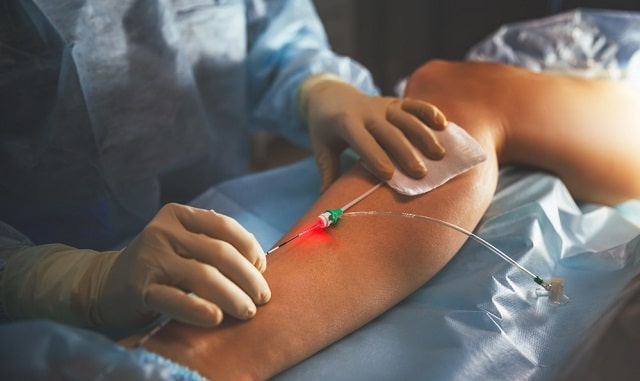
Varicose veins are unsightly and can be painful. It's no wonder that people who suffer from them end up feeling self-conscious about their appearance, or in some cases, they become so uncomfortable that they avoid social situations altogether. The good news is there are treatments available to help varicose vein sufferers regain their confidence and enjoy life again. Most of these treatments require only a few short sessions with your doctor, but the results could last for years. Book an appointment with Atur Kasha DO to help treat your varicose veins very effectively.
5 Top Treatments For Varicose Veins
1. Radiofrequency Ablation
Also known as RFA for short, this procedure involves using heat to destroy the vein. Sounds pretty straightforward, right? But you should know that it's not a quick fix. Your doctor will need to treat each varicose vein several times to close the entire vessel.
Another thing is that RFA isn't ideal for people who are obese since the procedure is performed through a catheter that's inserted into veins. RFA is also not appropriate for everyone with varicose veins, as it only works on superficial ones located near the surface of the skin.
2. Compression Stockings
It sounds so easy, but wearing compression stockings, or "vein support hose," can make a world of difference for people with varicose veins.
The compression from these stockings helps to strengthen the vein walls and improve blood flow in the area. They also alleviate the pressure that may build when fluid accumulates between treatments. Compression stockings need to be worn daily - for the rest of your life.
3. Sclerotherapy
Another popular treatment is sclerotherapy, which involves injecting a solution into the vein to collapse it. Over time, the collapsed veins are absorbed by your body and disappear completely. The procedure typically requires only one visit to your doctor, and treatments can be spaced out months apart if needed.
As with RFA, sclerotherapy is not typically recommended for people who are obese or pregnant. And it is also not ideal for people who have serious health problems like heart issues or diabetes since the treatment may increase the risk of blood clots.
4. VenaSeal
VenaSeal is one of the newer varicose vein treatments available. VenaSeal works by sealing off the vein to stop blood flow through it. The procedure itself is minimally invasive and takes about an hour.
VenaSeal is not intended for everyone with varicose veins - particularly those who are very overweight or have a history of blood clots. It's also not recommended if you're considering pregnancy or currently pregnant.
The good news is that many varicose vein treatments are safe for people with other medical conditions who can't risk invasive surgery, like heart problems or diabetes.
5. Lifestyle Changes
Of course, the best treatment of varicose vein formation is prevention. If you are looking to prevent varicose veins, there are several lifestyle changes you can make right now:
• Exercise regularly will help strengthen your leg muscles and improve blood flow.
• Don't cross your legs - this causes blood to pool in the vein, which increases the pressure that could lead to varicose veins.
• Don't sit or stand for long periods - get up and walk around every hour or so, even if it is to go to the bathroom.
Conclusion
Varicose veins can be unsightly, uncomfortable, and embarrassing. But don't worry, there are treatments available to help you regain your confidence and enjoy life again. Most of these treatments only require a few short sessions with your doctor, but the results could last for years. So if you are considering treatment options such as Radiofrequency Ablation (RFA) and sclerotherapy, see a varicose veins specialist.
